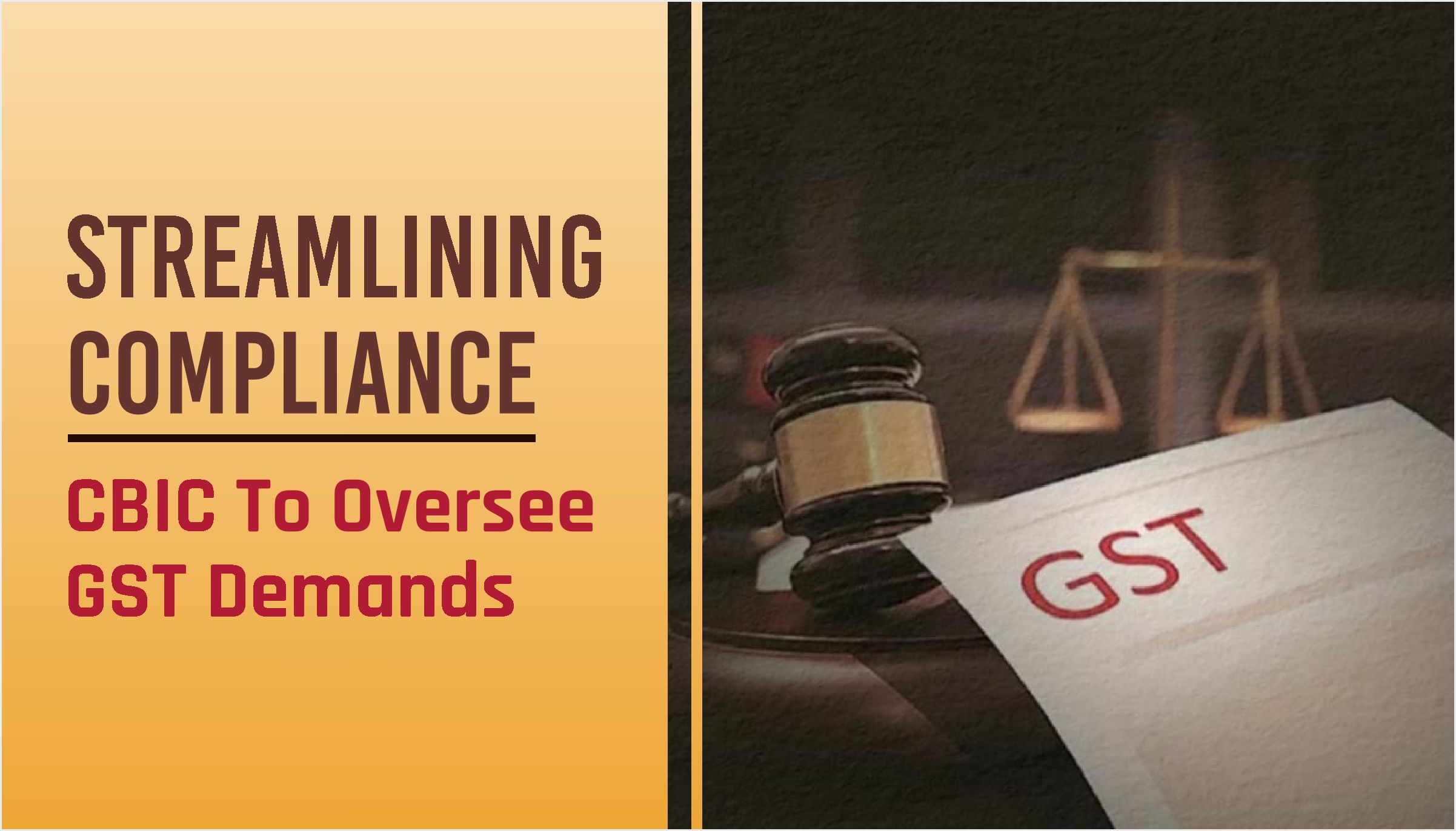Streamlining Compliance: CBIC To Oversee GST Demands

In a significant move aimed at easing burdens on taxpayers and fostering a more predictable business environment under the Goods and Services Tax (GST) regime, the Indian government has implemented stringent guidelines for the issuance of GST demand notices.
Government’s Directive: Centralized Approval Process
Effective immediately, the Directorate General of GST Intelligence (DGGI) must obtain prior approval from the policy wing under the Central Board of Indirect Taxes and Customs (CBIC) before sending any tax demand notices related to interpretation or classification matters. This decision marks a pivotal shift in regulatory oversight, designed to mitigate disputes stemming from divergent views between taxpayers and tax authorities.
Historically, DGGI notices have often sparked contentious debates, resulting in delayed payments, increased litigation, and administrative bottlenecks. By centralizing the approval process within the CBIC’s policy framework, the government aims to streamline investigations and allocate resources more effectively toward addressing substantive tax discrepancies.
Government’s Perspective: Enhancing Compliance Efficiency
According to official sources, this reform initiative aligns with broader objectives of reducing litigation and enhancing compliance efficiency within the GST framework. By channeling investigative efforts more judiciously, authorities anticipate quicker resolutions to pending cases and demand notices.
Recent deliberations at the 53rd GST Council meeting have yielded additional clarifications that offer respite to various sectors entangled in contentious DGGI notices. Notably, clarifications pertaining to foreign shipping lines, multinational corporations (MNCs), and startups have nullified several pending notices, amounting to substantial relief across affected industries. Cases involving corporate guarantees and employee stock ownership plans (ESOPs) are also expected to see accelerated resolutions.

Balancing Enforcement and Fairness
While the DGGI retains its mandate to investigate tax leakages and combat evasion, the reform ensures that interpretations of tax policy are rigorously scrutinized before issuing notices. This approach aims to foster greater consistency and fairness in tax administration, thereby reinforcing investor confidence and regulatory transparency.
The government’s decision to mandate CBIC approval for DGGI notices marks a progressive stride toward enhancing regulatory clarity and operational transparency within the GST framework. By prioritizing fairness and efficiency, India aims to fortify its position as a preferred destination for global investments while nurturing a sustainable and inclusive economic ecosystem.
